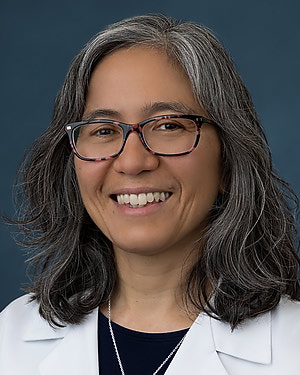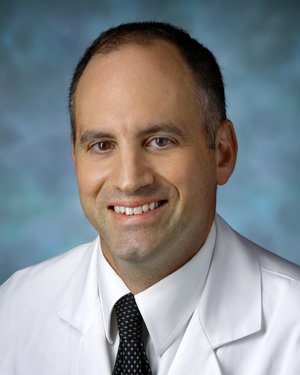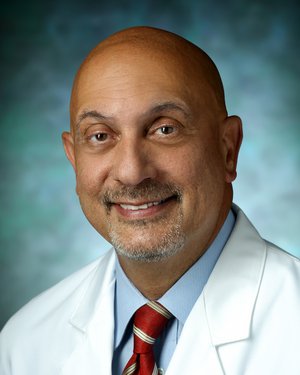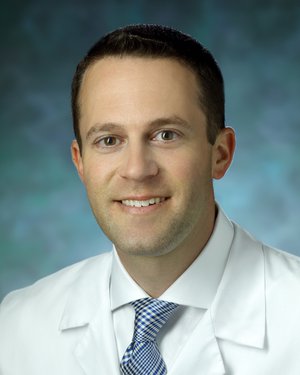Research Lab Results
-
Michael Kornberg Lab
Our laboratory conducts basic and translational research aimed at better understanding the pathogenesis of multiple sclerosis (MS) and the role of the immune system in CNS disease, particularly the processes that drive progressive disability such as neurodegeneration and remyelination failure. We currently have three parallel research programs: 1. Metabolism as a modulator of MS: We are studying how basic metabolic pathways regulate the immune system and how these pathways might be exploited to protect neurons and myelin-forming oligodendrocytes from injury. 2. Identifying pathways by which nitric oxide (NO) and other free radicals cause neuronal and axonal damage. Our lab is identifying specific signaling pathways initiated by NO and other free radicals that can be targeted by drugs to produce neuroprotection. 3. Modulating the innate immune system in MS: In collaboration with others at Johns Hopkins, we are studying ways to enhance the reparative functions of microglia while preventing maladaptive responses. This work has identified bryostatin-1 as a potential drug that may be re-purposed for this task. -
Mollie Meffert Lab
The Mollie Meffert Lab studies mechanisms underlying enduring changes in brain function. We are interested in understanding how programs of gene expression are coordinated and maintained to produce changes in synaptic, neuronal and cognitive function. Rather than concentrating on single genes, our research is particularly focused on understanding the upstream processes that allow neuronal stimuli to synchronously orchestrate both up and down-regulation of the many genes required to mediate changes in growth and excitation. This process of gene target specificity is implicit to the appropriate production of gene expression programs that control lasting alterations in brain function. -
Meredith McCormack Lab
Research in the Meredith McCormack Lab deals primarily with pulmonary diseases, such as asthma and chronic obstructive pulmonary disease (COPD), and the role of environmental exposures in lung diseases. We have researched the factors that contribute to inner-city asthma, with a focus on how particulate matter air pollution impacts pulmonary function. We are also part of the LIBERATE clinical study, which is focused on patients who experience difficulty breathing and have been diagnosed with severe emphysema. We also have a longstanding interest in the effects of race/ethnicity, poverty and urbanization on nutrition and food allergies.
-
Marek Mirski Lab
Work in the Marek Mirski lab explores the subcortical mechanisms of seizure propagation and cortical synchrony. The primary goal of our research is to develop methodologies for inhibiting seizures using site-specific subcortical electrical stimulation. Our identification of synaptically linked subcortical elements that contribute to seizure propagation has led to FDA-sanctioned phase III clinical trials to assess the use of targeted thalamic stimulation in patients with intractable seizures. We also conduct clinical research on the treatment of acute head injury, elevated intracranial pressure, cerebral edema, ischemic stroke and ICU sedation. -
Mark Levis Laboratory
Our broad research goals are to identify and validate novel molecular therapeutic targets in hematopoietic malignancies. We are interested in the identification and pre-clinical development of novel targeted therapies, and, in particular, the “translational” step of this research by using correlative studies to incorporate these novel therapies into existing treatments. Our research is of particular interest to those who wish to be involved in directly translating the results of laboratory bench work into meaningful benefits for patients. Currently, we are actively involved in the pre-clinical and clinical development of small molecule kinase inhibitors targeting the FLT3 signaling pathway in acute myeloid leukemia. We are interested in 3 compounds in particular- AC220, a FLT3/KIT inhibitor; crenolanib,a selective FLT3 inhibitor with activity against resistant point mutations; and PLX3397, another inhibitor of KIT and FLT3. The active projects in the lab include: 1) Characterization of cytotoxic responses of different hematologic malignancies to FLT3 and KIT kinase inhibition; 2) Examination of the interaction of bone marrow stroma and stroma-derived cytokines on the efficacy of these inhibitors; 3) Examination of the differential effect of FLT3 inhibition versus combined FLT3/KIT inhibition on acute myeloid leukemia and bone marrow progenitor cells; and 4) Correlative laboratory studies using blood and marrow samples from patients treated with FLT3 inhibitors, with the aim of developing predictive models for clinical response.
-
Thomas Grader-Beck Lab
Research in the Thomas Grader-Beck Lab aims to understand the pathogenesis of systemic autoimmune diseases—particularly systemic lupus erythematosus (SLE) and Sjögren’s syndrome—by taking a translational approach. Autoantibodies (antibodies that target self-molecules) are believed to contribute significantly to the disease process. We are studying mechanisms that may make self-structures immunogenic. We theorize that certain post-translational antigen modifications, which can occur in infections or malignant transformation, result in the expression of neoepitopes that spread autoimmunity in the proper setting. The team has combined studies that employ a number of mouse strains, certain gene-deficient mice and human biological specimens.
-
The Barouch Lab
The Barouch Lab is focused on defining the peripheral cardiovascular effects of the adipocytokine leptin, which is a key to the understanding of obesity-related cardiovascular disease. Interestingly, many of the hormonal abnormalities seen in obesity are mimicked in heart failure. The research program will enhance the understanding of metabolic signaling in the heart, including the effects of leptin, exercise, sex hormones, and downstream signaling pathways on metabolism and cardiovascular function. The lab also is working to determine the precise role of the “metabolic” beta-3 adrenergic receptor (ß3AR) in the heart and define the extent of its protective effect in obesity and in heart failure, including its role in maintaining nitric oxide synthase (NOS) coupling. Ultimately, this work will enable the exploration of a possible therapeutic role of ß3AR agonists and re-coupling of NOS in preventing adverse ventricular remodeling in obesity and in heart failure. Lili Barouch, MD, is an associate professor of medicine in the Division of Cardiology and a member of the Advanced Heart Failure and Cardiac Transplantation group at the Johns Hopkins University School of Medicine.
-
Todd Brown Lab
The Todd Brown Lab focuses on metabolic, endocrine and skeletal abnormalities in HIV-infected patients, particularly as these factors relate to aging. Our studies take an epidemiologic approach to understanding the occurrence and prevalence of insulin resistance, diabetes, and anthropometric changes in HIV patients and their relationship to antiretroviral treatment.
-
Roger Johns Lab
Investigators in the Roger Johns Lab are examining the molecular mechanisms behind the onset and continuation of chronic pain, particularly neuropathic pain. This work has led to a better understanding of the vast network of molecules at neuronal synapses, particularly the postsynaptic density (PSD), which is key to the propagation of pain signals. We're working to develop new analgesics that interfere with the PSD protein interactions in an effort to better treat patients who suffer from chronic pain.
-
Raul Chavez-Valdez Lab
Dr. Raul Chavez-Valdez is an assistant professor in the Department of Pediatrics with great interest in the mechanisms of delayed injury and repair/regeneration in the developing neonatal brain following injury, specifically following hypoxic-ischemic encephalopathy (birth asphyxia). He collaborates with Dr. Frances Northington (Pediatrics) and Dr. Lee Martin (Pathology/Neuroscience) in unveiling the importance of programmed necrosis in the setting of brain injury induced by birth asphyxia. He is especially interested in the role of brain derived neurotrophic factor and neurotrophin-4 following birth asphyxia and the changes that may explain the suspected excitatory/ inhibitory (E/I) imbalance particularly in the hippocampus. His work is highly translational since delayed hippocampal injury due to E/I imbalance may explain memory deficits observed despite therapeutic hypothermia in neonates suffering birth asphyxia. All of these aspects of developmental neuroplasticity are the base of his Career Development Award (NIH/NINDS-K08 award) and applications to other agencies. Additionally, he is part of multiple clinical efforts as part of the Neuroscience Intensive Care Nursery (NICN). He has been a Sutland-Pakula Endowed Fellow of Neonatal Research since September 2013.



